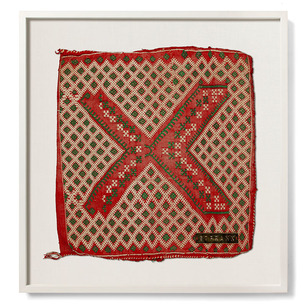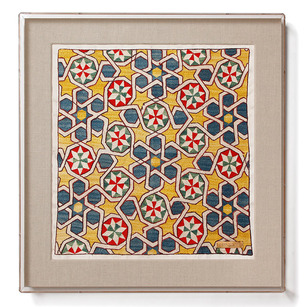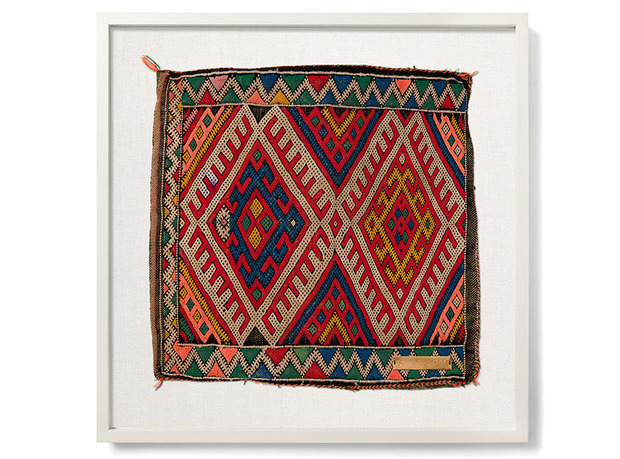Framed Textile Art from St. Frank
The young social enterprise sources the woven and embroidered from artisans around the world


Photographs, paintings and posters have been the standard go-tos for sprucing up apartment walls, and now SF-based St. Frank would like to us consider another option: textiles sourced from around the world. And forget those mass-produced tapestry reproductions that friends and family bring back from trips; St. Frank’s unique offerings include vibrant embroidery from the indigenous Otomí people of central Mexico, decorative teakettle coverings from Uzbekistan, cactus silk pieces made by the Berber people and more. There’s a story behind each piece (many of which are one-of-a-kind) and the young company has a strong social mission to preserve these stories and skills, along with economically empowering the craftspeople from low- and middle-income countries.


Rather than adding a charitable component onto a business, our approach aims to harness the power of business to create social change.
Founder Christina Bryant has a not-so-typical background; the art history major worked at MoMA but also pursued NGO work in Rwanda with Partners in Health. With an interest in both international development and the arts, and armed with an MBA from Stanford, Bryant “started St. Frank to pioneer a new standard in ethical luxury for the home,” she tells CH. “For us that means providing a collection of pieces that people buy for their quality and authenticity; it also means integrating social impact into the way we do business. By the latter I mean, rather than adding a charitable component onto a business, our approach aims to harness the power of business to create social change.”

“In many of the communities in which we work… women have limited access to education and many of them are even illiterate,” notes Bryant. “Textile-making has served as a means for these women to communicate their stories over generations. Within each of these crafts—whether backstrap weaving, suzani embroidery, or indigo dyeing, to give a few examples—the textile designers express their perspective and creativity through beautiful handwork.”
“We’re the first retailer of framed textiles, so it’s really exciting for us to be able to share the amazing art coming out of under-resourced communities this way,” she finishes. This is one of St. Frank’s strong selling points: a custom linen-covered mat and frame are included in the price. Textiles—such as vintage silk scarves—are notoriously difficult to frame, with the process sometimes costing twice as much as the artwork itself; it’s a great relief knowing the artwork will arrive ready-to-hang.
Textile pieces start at $220, with some vintage finds capping at $4300; print versions of some designs are also available at a lower price. Visit St. Frank online to order.
Images courtesy of St. Frank












